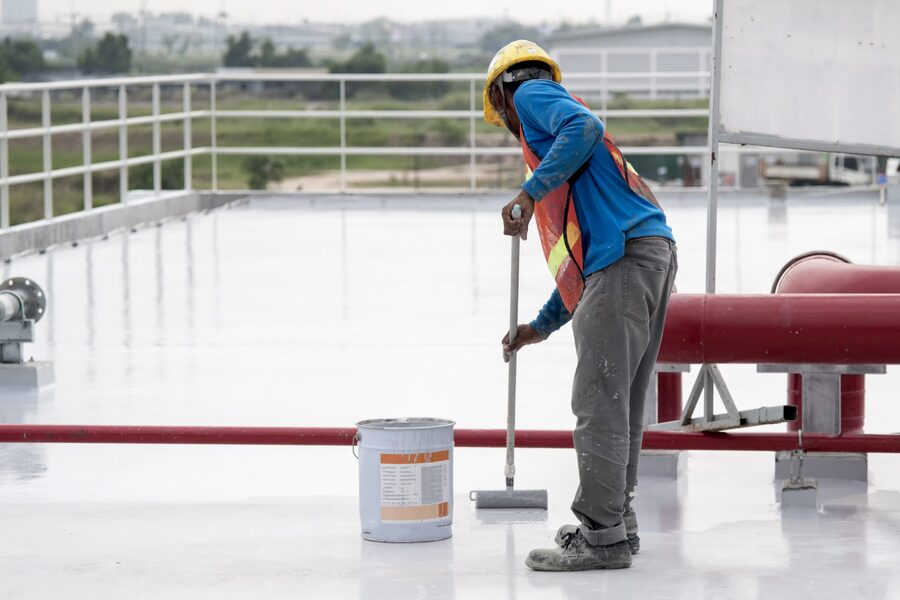South Florida’s unique climate presents a range of challenges that property owners must contend with. The region’s hot and humid weather can take a toll on various surfaces, particularly concrete, which is widely used in construction. Concrete surfaces, such as driveways, sidewalks, patios, and pool decks, are constantly exposed to the elements, including intense sunlight, heavy rainfall, and high humidity. This calls for innovative solutions that can withstand the harsh conditions and provide long-lasting protection. Enter concrete coatings – a specialized treatment that offers a multitude of benefits tailored to South Florida’s weather. In this article, we will delve into the advantages of concrete coatings in this tropical climate, exploring how they safeguard against wear, moisture, and UV exposure, ultimately ensuring that your surfaces remain both stunning and resilient.
The South Florida Climate Challenge
Before we dive into the benefits of concrete coatings, let’s take a closer look at the unique climate challenges posed by South Florida. The region is characterized by its hot and humid subtropical climate, featuring high temperatures and significant humidity levels year-round. With an average of over 240 sunny days per year, the relentless exposure to sunlight can cause surfaces to fade, crack, and deteriorate. Additionally, the high humidity can lead to mold, mildew, and moisture-related issues, further contributing to the degradation of surfaces.
Advantages of Concrete Coatings
Concrete coatings are specially designed protective layers that are applied to concrete surfaces. These coatings offer a range of advantages that make them an ideal solution for South Florida’s climate:
- Enhanced Durability
Concrete coatings form a durable barrier that shields concrete surfaces from physical wear and tear. In high-traffic areas like driveways and walkways, foot and vehicular traffic can gradually erode the surface. Coatings act as a sacrificial layer, absorbing the impact and preserving the integrity of the underlying concrete. This enhanced durability extends the lifespan of the surface, reducing the need for frequent repairs or replacements.
- Moisture Resistance
Coatings create a waterproof seal that prevents moisture penetration, reducing the risk of cracks, erosion, and mold growth. The hot and humid climate of South Florida can lead to moisture seeping into concrete, causing it to weaken and crack over time. Coatings effectively block water molecules from infiltrating the surface, thus minimizing the potential for moisture-related damage.
- UV Protection
Concrete coatings include UV-resistant properties that shield against the damaging effects of prolonged sun exposure. UV rays can cause the color of concrete surfaces to fade and the material to deteriorate. Coatings with UV protection act as a barrier, reflecting harmful rays and preserving the surface’s appearance and structural integrity.
- Heat Reflectivity
Certain coatings are designed to be reflective, reducing heat absorption and maintaining lower surface temperatures. In South Florida’s scorching heat, surfaces like pool decks can become uncomfortably hot. Reflective coatings bounce back a portion of the sun’s rays, preventing excessive heat buildup and creating a more comfortable surface for walking and lounging.
- Aesthetic Enhancement
Coatings come in a variety of colors, textures, and finishes, enhancing the visual appeal of concrete surfaces. Property owners can choose from an array of options to match their preferred aesthetic, whether it’s a glossy finish for a modern look or a textured finish for added traction around pool areas.
- Low Maintenance
Coated surfaces are easier to clean and require less maintenance compared to untreated concrete. The smooth, sealed surface of a coating prevents dirt, oil, and stains from penetrating, making cleanup as simple as a quick wash with water and mild soap. This is particularly advantageous in a region where frequent rain showers can lead to muddy or dirty surfaces.
- Chemical Resistance
Concrete coatings can offer resistance to chemicals, including oil, gasoline, and cleaning agents. This is especially important for driveways and garage floors, where exposure to these substances is common. The chemical resistance of coatings prevents unsightly stains and deterioration caused by chemical reactions.
- Quick Application and Cure
Many concrete coatings have a relatively quick application process and cure time, minimizing disruption to daily routines. Property owners don’t need to endure extended construction periods, allowing them to enjoy the benefits of the coating sooner.
Takeaways
After delving into the advantages of concrete coatings tailored to South Florida’s climate, it’s clear that these solutions offer more than just protection. They provide a comprehensive approach to preserving and enhancing the longevity and aesthetic appeal of concrete surfaces in the region. To summarize the key takeaways:
- Concrete coatings enhance the durability of surfaces, protecting against wear and tear.
- The waterproof seal of coatings prevents moisture-related damage and mold growth.
- UV-resistant coatings shield surfaces from the harmful effects of sun exposure.
- Reflective coatings reduce heat absorption, maintaining lower surface temperatures.
- Various coating options allow for aesthetic customization.
- Coated surfaces are low maintenance and easy to clean.
- Chemical resistance of coatings prevents stains and deterioration from chemicals.
- Quick application and cure times minimize disruption.
Meta Description: Discover the advantages of concrete coatings in South Florida’s hot and humid climate. Learn how these coatings protect against wear, moisture, UV exposure, and more, ensuring your surfaces remain stunning and resilient.

